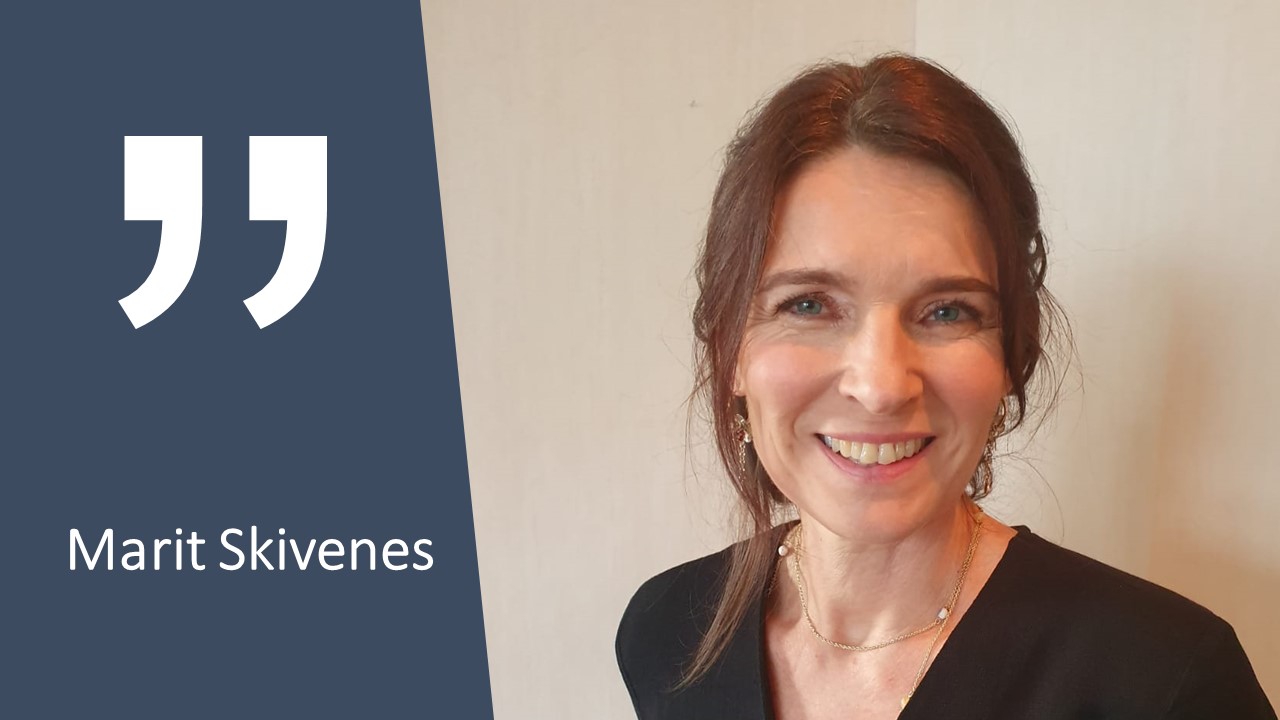BLOG: We must listen to children´s views on contact in child protection care orders.
Blogpost by Professor Marit Skivenes
The European Court of Human Rights has criticized the Norwegian government for violating the European Convention on Human Rights by restricting contact between parents and a child in child protection cases. In Norway, this has resulted in public debates, new research projects and promises from the government to find out what is going on and to improve practice.
Hersey indicates that practice is already changing, and children and their birth parents are given more contact time in care order cases. This might be a very good change, but truth be told, we do not know if this is for better or for worse.
Contact practice in Norway
The first problem is that we do not have information about contact practice in Norway. So far there is a huge knowledge gap in terms of how much contact children in care have; the reasons for specific contact frequencies; what is the short term and long-term impact of contact on children, as well as on birth parents, foster parents and other family members, just to mention a few aspects.
In short, it is a significant knowledge gap that needs to be filled (see my earlier blogpost on this topic: Contact in Child Protection Care Orders). Politicians have authority to set the threshold and the normative standards for how the Norwegian child protection system should operate, but they also have the responsibility to ensure that law and politics are informed by empirical facts and knowledge-based research.
Lack of information from Children
The second problem is that there is a lack of information from children. It is undisputed that contact should be decided and based on the child´s best interest, and contact arrangements must be based on the specific child´s needs and interests. Well, how do we know what is in a specific child´s interests?
The simple and straightforward answer is that in most circumstances one must hear and speak with the child. Children are the best informants about what they feel and what they experience. The legal position on children´s right to be spoken with is crystal clear: children have a right to be involved in decisions that have importance for them. Clearly, contact with birth parents and wider family is important for children in care.
It is undisputed that contact should be decided and based on the child´s best interest
Marit Skivenes
Unfortunately, we know that much too often, children are not sufficiently involved in child protection cases – there is plenty of research displaying this. When it comes to contact and contact arrangements, there is very little knowledge, internationally and in Norway, on children´s views and experiences.
Two reports on children’s views
I know of two reports. One from 2011 – Contact Pro’s – in which a group of children aged 13-18 years old that were living in foster homes, together with foster parents and birth parents, presented their views on what they need and which themes that are important for them. A clear message from this group of children is that children must be informed and listened to, and the report includes advice and suggestions for how contact arrangements can be improved.
The second report – It’s About Us was recently published, January 2021, and here 100 children, aged 7-18 years old (mean 13 year), that were placed out of home, were asked about contact with birth parents and/or birth family. The report does not answer the question about what is enough contact for children and their parents when there is a child protection intervention and the child has been removed from the natural parents and is living in a foster home or a residential unit.
A clear message from this group of children is that children must be informed and listened to
Marit Skivenes
However, the report shows that a clear majority of these children were not involved in decisions about contact arrangements. On a range of important questions, such as how much contact there should be; how long each contact session should be; if contact should be supervised; what to do in contact sessions, etc., two out of three children said they were not involved in the decision. These are depressing findings which are overwhelming to read, and it is to hope that an alarm goes off for child protection decision makers at all levels.
Focus on children’s interests
In the ongoing call for changes in how contact is practiced in the Norwegian child protection system, I wish and hope that children and their needs and interests, are placed in the center of the considerations and decisions that are made. After all, it’s their life and their relations. Thus, I end this blogpost with an excerpt from the report, that sums up 100 children´s view on what the aim or goal with contact should be:
“Many of us answered that the goal should be to not completely lose contact with our parents after we were moved. Some of us answered that the goal with contact should be to visit our biological parents or to meet our family occasionally. Some of us said that the goal should be to get to know parents a little and get to know something about them. A few replied that the goal should be to see where you come from and know who your family is. A few of us replied that the goal should be to talk a little about what you have done and hear how things are going with each other. Many of us answered that it was important that we wanted to have contact, otherwise it would not be a point having it. None of us said that the goal of contact should be reunification. “ (2021, p. 12).
Marit Skivenes is the Director of Centre for Research on Discretion and Paternalism, and a Professor in Political Science at the University of Bergen.
Other blog posts from Skivenes:

